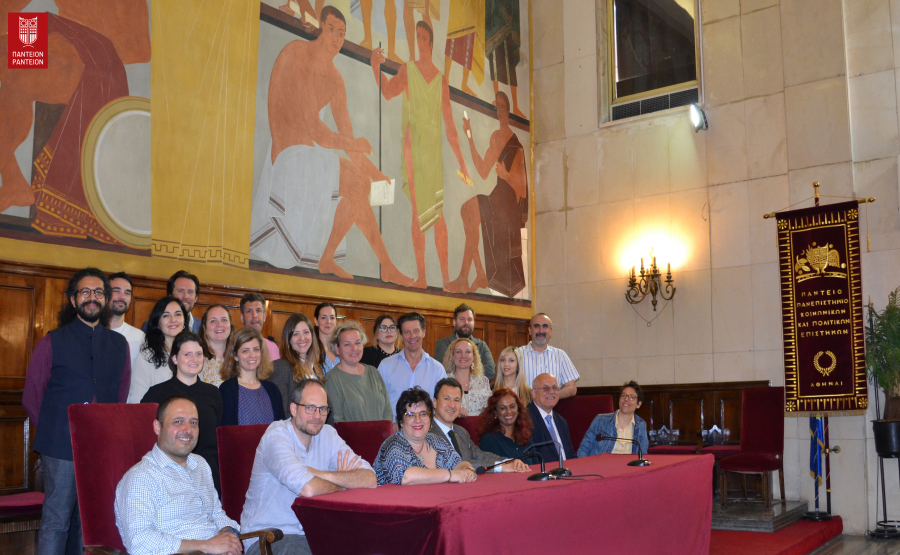25/09/2023

£€3.16m EU research funding hopes to manage extremist views
An international team of academics led by The Open University and KCSS has won €3.16m research funding, to help people manage the development of extremist views at home and abroad in the run up to major political events.
Psychologists at the Open University and KCSS are working on developing tools for the project that has been funded by the European Commission’s Horizon Europe programme involving 17 partners across Europe and beyond its borders.
It will be used in the lead-up to events that are likely to become polarised, including elections or referenda as in the case of Brexit in the UK that in extreme cases, split families.
The over-arching project is known as OppAttune and includes the development of a tool designed specifically for key target audiences to enable more productive democratic debate.
Yet it’s aiming to reach far beyond dinner-table discussions. The new ground-breaking tool is being developed by academics who hope it will limit the development of extreme narratives through showing people that their views might be considered extremist by others.
They plan to have the free self-test tool kit, known as I-Attune, available on the OU’s OpenLearn platform in 2025 to help citizens globally engage politically with each other without resorting to extremes. It will be available initially for three years but could be rolled out further.
Kesi Mahendran, Professor of Social and Political Psychology at the OU, is the scientific co-ordinator of OppAttune. The administrative co-ordinator is the Panteion University in Greece.
The project will allow citizens to assess three key aspects: their own susceptibility to extremism; their capacity to tune into other positions and their ability to sustain dialogue in highly polarized situations.
Kesi said: “Whether we sit around a dinner table discussing politics or in the echelons of power, democratic dialogue is crucial but there is huge capacity for ordinary people to either avoid politics or to become highly opinionated, partisan and entrenched.”
Adelina Hasani, researcher at KSS, said: "First, we need to be aware of the trends that lead us towards extremism and then create democratic spaces for discussions that do not contain extremism."
Kesi continued: “Without the skills to navigate political situations, politicians and people in the media can easily mobilise others. The hope is OppAttune will give people the tools to maintain their political conversations without becoming so extreme that opposing parties or groups find them so threatening that they are removed.”
Six target audiences have been identified and include:
For more information contact Philippa Green at The Open University, [email protected]
About The Open University
The Open University (OU) is the largest academic institution in the UK and a world leader in flexible distance learning. Since it began in 1969, the OU has taught more than 2.3 million students worldwide and currently has over 208,000 students.
Seventy-one per cent of directly registered students are in full-time or part-time employment, and 76 FTSE 100 companies have sponsored staff to take OU courses.
In the latest assessment exercise for university research (Research Excellence Framework, 2021), over three quarters (76%) of OU research was assessed as 4 or 3 star – the highest ratings available, awarded to research that is world-leading or internationally excellent. The OU’s commitment to research and societal impact is recognised too with 82% of its research impact assessed to be world-leading or internationally excellent.
For further information please visit The Open University
About OppAttune
The OppAttune project brings together an ambitious multi-disciplinary team, it uses psychological, history, communication studies, anthropological and social science, as well as input from former government analysts, to study extremism and how politics and public opinion intersect.
It explores new methods for understanding public decision-making beyond charting social attitudes and public-opinion polling and it promises to have a strong scientific impact during and beyond its lifetime.
Critically, the project designs inclusive and open ways of sharing knowledge gained by academics and will find tools and mechanisms for future public engagement initiatives for NGOs working in the field. It aims to benchmark and begin discussions about everyday extremism.